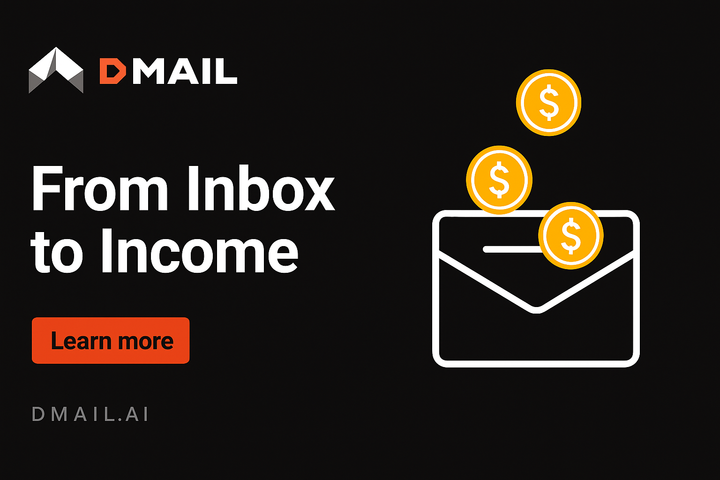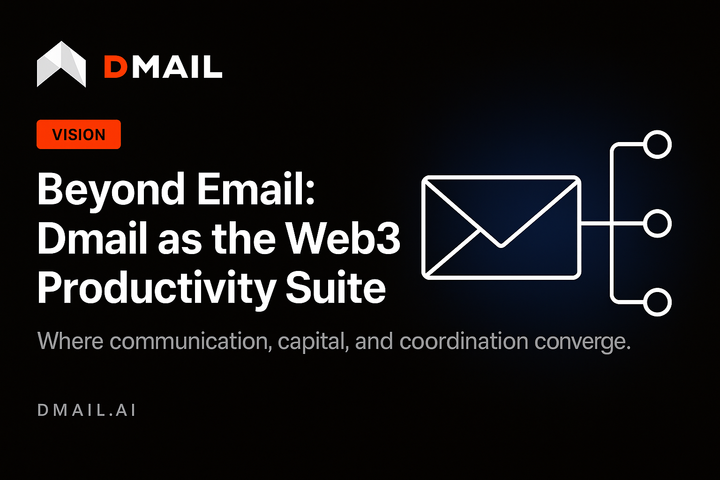DMAIL Network Encryption and Security: Foundation of Web3 Communication
DMAIL Network uses advanced encryption and decentralized security to ensure private, secure communication. With features like Zero-Knowledge Proofs, decentralized storage, and advanced authentication, DMAIL safeguards data and privacy while preparing for future threats.

In the Web3 era, where decentralization and user sovereignty are paramount, encryption and security serve as fundamental foundations of trust and utility, not merely as technical components. To offer a safe, private communication platform that fits the demands of people and companies in a fast-changing digital environment, DMAIL Network makes use of strong security mechanisms and cutting-edge encryption technologies.
The foundation of safe communication is encryption, which turns private data into a coded form that only authorised users can decode. Encryption guarantees against illegal access or hostile attacks on every message, user interaction, and data transmission in DMAIL. These encryption systems guarantee that DMAIL's communication stays private, secret, and tamper-proof.
Modern Security Strategies
Beyond encryption, DMAIL integrates several levels of security to guard consumers and their data against a variety of hazards. Distributed storage replaces traditional centralised servers, enhancing data resilience and reducing single points of failure.
Multi-factor authentication (MFA) and decentralized identity (DID) systems exemplify advanced authentication techniques that ensure only authorized users can access private data or accounts. Additionally, behavioral analytics powered by machine learning analyze usage patterns to detect anomalies such as phishing attempts or unauthorized access. These measures are complemented by Transport Layer Security (TLS), which encrypts data in transit to prevent eavesdropping or interception, effectively addressing network layer security.
DMAIL's Dedication to User Confidentiality
Encryption and security policies taken together show DMAIL's constant dedication to customer privacy. DMAIL guarantees that all user data stays under control, unlike conventional systems dependent on monetising user data. Additionally, Zero-Knowledge Proofs (ZKPs) allow users to confirm identities or actions without revealing private information, therefore strengthening their privacy.

DMAIL Encryption and Security Applications
DMAIL's robust security and encryption capabilities support a variety of use cases within the Web3 ecosystem:
- Private Business Communication: Businesses can securely transmit contracts, intellectual property, or sensitive data without fear of leaks or unauthorized access.
- Confidential Personal Messaging: Users can share media, documents, or private messages with complete assurance against interception or surveillance.
- Cross-Chain Communication: DMAIL enables seamless blockchain interoperability, ensuring secure and efficient data exchange across networks.
- Task-Based Incentives and Rewards: Proof of work or participation remains private and verifiable, supporting task completion or reward distribution without compromising confidentiality.
Encryption and Security Future Advancement
The difficulties with encryption and security change along with the digital terrain. We are preparing for the future by researching Post-Quantum Encryption systems that can withstand the computational capacity of quantum computers, exploring Homomorphic Encryption techniques that enable computations on encrypted data without decrypting it to further enhance privacy, and utilizing AI-Driven Threat Detection to predict and minimize potential security risks before they escalate DMAIL.
Developing Trust in the Decentralized Future
DMAIL's goal to provide a trustworthy communication platform for the Web3 age revolves mostly on encryption and security. DMAIL guarantees that people and businesses may interact safely and freely by including powerful encryption algorithms, distributed storage, and user-centric privacy safeguards. DMAIL is dedicated to staying on top of encryption and security innovation as technology develops, therefore defining a new benchmark for distributed communication.

Connect with Dmail: Website | Twitter | Discord | Github | Telegram





Comments ()